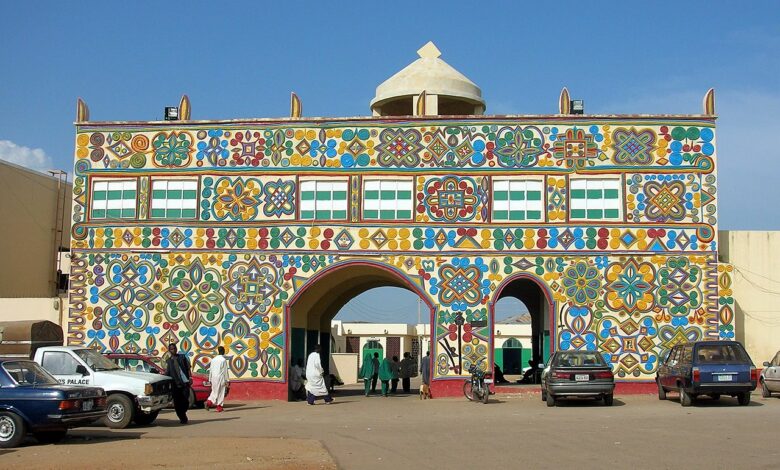Top 5 Historical Sites That Shaped Nigeria’s History

Nigeria, a nation rich in cultural diversity and history, is home to numerous historical sites that have significantly influenced its past and continue to shape its identity today. From ancient kingdoms to colonial landmarks, these sites offer a glimpse into Nigeria’s complex history and the myriad of cultures that have flourished within its borders. Here are the top five historical sites that have profoundly shaped Nigeria’s history.
1. Aso Rock
Aso Rock, a prominent 400-meter (1,300 ft) rock formation located in the capital city of Abuja, serves as a symbol of Nigeria’s unity and governance. The rock is flanked by several key government buildings, including the Nigerian Presidential Complex, the National Assembly, and the Supreme Court. The area around Aso Rock has significant historical importance, as it was chosen as the location for the capital during the military regime of General Murtala Mohammed in 1976, symbolizing a shift from Lagos to a more centrally located capital. The site is not only a focal point of Nigeria’s political landscape but also a reminder of the country’s ongoing journey toward democracy and national identity.
2. The Olumo Rock
Located in Abeokuta, Ogun State, Olumo Rock is a significant historical and cultural site that served as a fortress for the Egba people during the Yoruba civil wars in the 19th century. Rising about 137 meters above sea level, the rock is a popular tourist attraction, offering panoramic views of the city and surrounding landscape. Olumo Rock has deep cultural significance, with various shrines and artifacts that reflect the spiritual beliefs of the Yoruba people. The site symbolizes resilience and strength, marking the historical struggles and eventual peace achieved by the Egba people.
3. The Slave History Museum (Badagry)
Badagry, a coastal town in Lagos State, was a major hub for the transatlantic slave trade in the 18th and 19th centuries. The Slave History Museum, located in Badagry, documents the harrowing history of slavery in Nigeria. The museum features artifacts, photographs, and exhibits that highlight the experiences of enslaved Africans and the impact of the slave trade on Nigerian society. Visitors can also explore the “Point of No Return,” a significant site where enslaved individuals were taken before being shipped across the Atlantic. This museum serves as a powerful reminder of Nigeria’s painful past and the enduring legacy of slavery.
4. Zaria (The Ancient City of Zazzau)
Zaria, known as Zazzau, is one of the oldest cities in Nigeria and was the capital of the ancient Zazzau Kingdom, part of the larger Hausa city-states. The city is famous for its historical significance, particularly during the Sokoto Caliphate’s expansion in the 19th century. The ancient city walls and structures, including the Zaria Emir’s palace, reflect the architectural style of the Hausa people and the region’s Islamic heritage. Zaria is also home to the famous Emir of Zazzau, who continues to play a vital role in the cultural and political life of the region. The city symbolizes the rich history of the Hausa people and their contributions to Nigeria’s cultural tapestry.
5. The Bantu Iron Smelting Sites (Niger State)
The Bantu Iron Smelting Sites, located in Niger State, are significant archaeological sites that provide insight into ancient iron production in Nigeria. Dating back over a thousand years, these sites showcase the technological advancements and craftsmanship of the early Bantu-speaking peoples. The discovery of iron smelting furnaces, tools, and artifacts has shed light on the socio-economic structures of these ancient communities. The sites highlight the importance of metallurgy in Nigeria’s history and its influence on trade, agriculture, and the development of complex societies.
Nigeria’s historical sites serve as a testament to the country’s rich and diverse heritage. From the struggles of ancient kingdoms to the impacts of colonialism and the transatlantic slave trade, these sites offer invaluable insights into the nation’s past. By preserving and promoting these historical landmarks, Nigeria honors its heritage and educates future generations about the events that have shaped its identity. Exploring these sites not only enriches our understanding of Nigeria’s history but also fosters a sense of pride in its cultural legacy.




